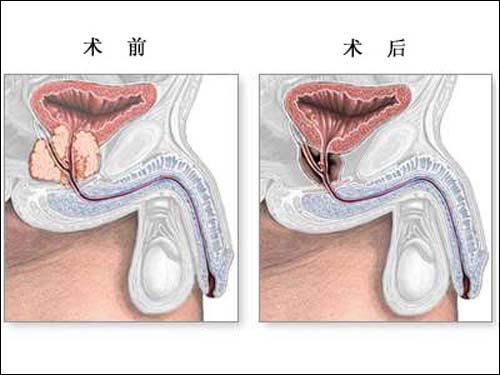Prostate removal is considered to be a very radical type of medical procedure that is used to remove the entire prostate along with a man’s seminal vesicles. The prostate is a type of gland that is connected to the neck of the bladder and around the male’s urethra. A man’s seminal vesicles are located behind the bladder and are very close to the prostate. The seminal vesicles are responsible for secreting the fluid that is known as semen.

Prostate Removal
Prostate removal surgery is only recommended for a man who is suffering from Prostate Cancer. Prostate removal is a very serious procedure. A man might have prostate removal surgery that has an estimated life expectancy of ten years or more and a localized, treatable cancer.
Prostate removal is performed with a type of regional or general anesthesia. The person will be numb and drowsy when waking up after having prostate removal surgery performed.
The most common approach to prostate removal is having a radical retropubic prostatectomy. This is a type of medical procedure in which there is an incision made below the naval and the incision extends all the way to the pubic bone. It is through this incision that the prostate is removed.
Another type of prostate removal surgery is radical perineal prostatectomy. In this type of prostate removal there is a small, curved incision made between the base of the scrotum and the anus. The prostate is removed from underneath a man’s public bone.
Each type of prostate removal surgery has its disadvantages and advantages. With the perineal approach the patient has a much shorter period of recovery time but with the retropubic approach the doctor is able to remove a lymph node sample at the same time. The lymph node sample may then be tested for cancer.
Once the prostate is removed the urethra is then connected back to the neck of the bladder. A man who has had prostate removal surgery will have to have stitches and a urinary catheter. This is a very serious operation that is only used in cases of prostate cancer.
A man will have to take it easy after having prostate removal surgery performed and he may also have to undergo certain chemotherapy or radiation treatments to make sure that the cancer has been removed or destroyed. A man will have an easier time urinating and less pain once his body has healed from having prostate removal surgery.

![Diseases, Symptoms, tcm, [tcmwindow.com]](/uploadFile/adImg/2015/11/11/f5cbfcc0-4df5-4646-9b9a-f316651a0199.jpg)





